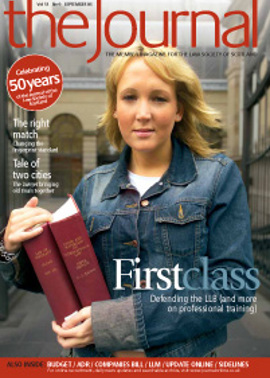Book reviews

I really like this collection of essays by plain language guru, Joseph Kimble. But I would do; the essays reflect my personal views.
If you take language seriously, you should read this book. It is relevant equally to practitioners and academics; private practice and in-house lawyers; private and public sectors; and general practitioners and specialists.
As a collection of essays, there is some repetition and, as it is written primarily for the US audience by a US author, some of the style and language may jar a bit with a UK audience. However, these small faults are easily forgiven.
Kimble’s crusade is to improve our profession by helping us to express ourselves in plain language. His passion for his subject shines through.
There are two main thrusts to the book:
- convincing us that we lawyers need to improve our skills of written communication; and
- helping us to do just that with practical suggestions.
- He succeeds in both aims.
- Kimble starts by reminding us of “some terrible truths”:
- most legal writing is bad; and
- most lawyers believe others’ prose should be plainer, simpler, shorter and clearer but resist changing their own style.
Kimble treats us to examples of long and flabby legalese and shows how it can be rewritten simply.
He explodes the myths put forward by lazy writers and those who seem to want to confound.
A couple of essays present interesting empirical testing of judicial opinions. The method was simple: ask lawyers to read two versions of the same opinion and say which one they like best and why. Guess what? Most liked the plain language version!
Another essay, “The Elements of Plain Language”, contains practical advice on how to write plain language. Many of us will have our own views. For example, when drafting letters and emails, I try to live by a “rule of 3”: be short; be simple; and be human. Kimble’s advice is more detailed and
helpful.
Other essays give further practical help:
- “A Wish List for Legal Writing”. If you want your writing to be clear and readable rather than lawyerish then read this essay.
- “Plain Words”, which suggests simple words to replace more complex ones. For example “although” in place of “notwithstanding the fact that”.
When it comes to some of our profession’s musty favourites like “aforementioned” and “hereinafter”, Kimble’s advice is simple – total abstinence. We may suffer withdrawal symptoms, but it is worth it in the long run.
There is a great deal of sensible, practical advice in this book. While I do not agree with every word, I do believe that if we were to follow Kimble’s lead:
- we would write for the reader and so our writing would be more concise and clearer.
- time and money would be saved as a consequence.
- businessmen, other professionals and the public generally may take a kinder view of our profession than they do now.
Kimble is well placed to give advice on plain legal language. Not only has he taught legal writing for more than 20 years but he recently led the work of redrafting the US Federal Rules of Civil Procedure.
He practises what he preaches.
There is a growing global movement towards plain legal language. Our Scottish profession is in danger of being left behind. For £13.21, you can find out what it’s all about and make up your own mind whether we should move with the times.
David Hardie, Partner and Head of Knowledge & Learning, Dundas & Wilson CS
In this issue
- Sincere thanks are due
- From the grass roots
- Training solicitors and teaching law
- Survival of the fittest?
- A new print job
- Plenty more besides
- That's settled, then
- East meets west
- A shot in the arm
- Tapping into CPD Online
- Master trainee
- Glitch hunt, not witch hunt
- A caveat on witnesses
- Victories for tenants?
- On your marks...
- Big bill for business
- Ripple effect
- How fair is fair?
- Scottish Solicitors' Discipline Tribunal
- Website reviews
- Book reviews
- Spinning plates
- Sending the right signals






